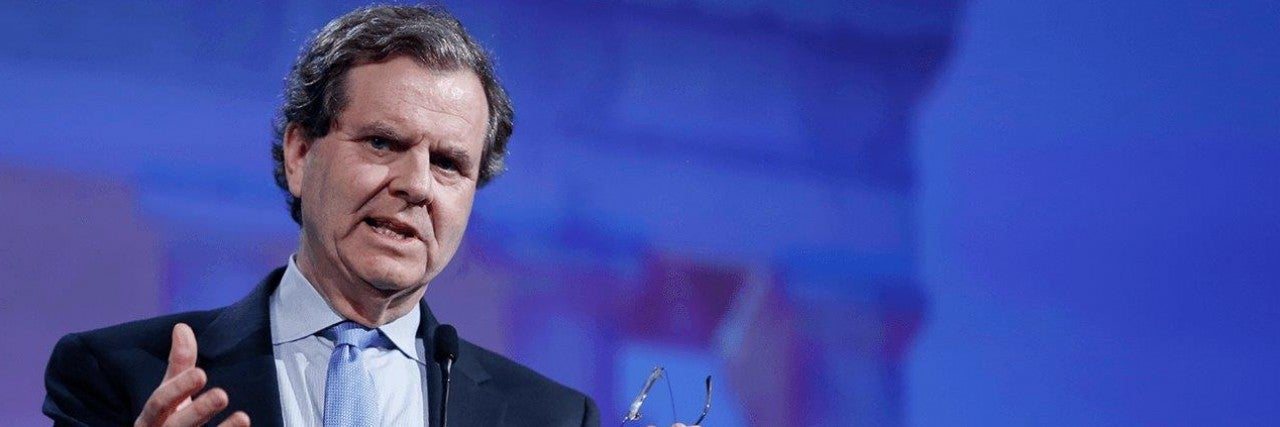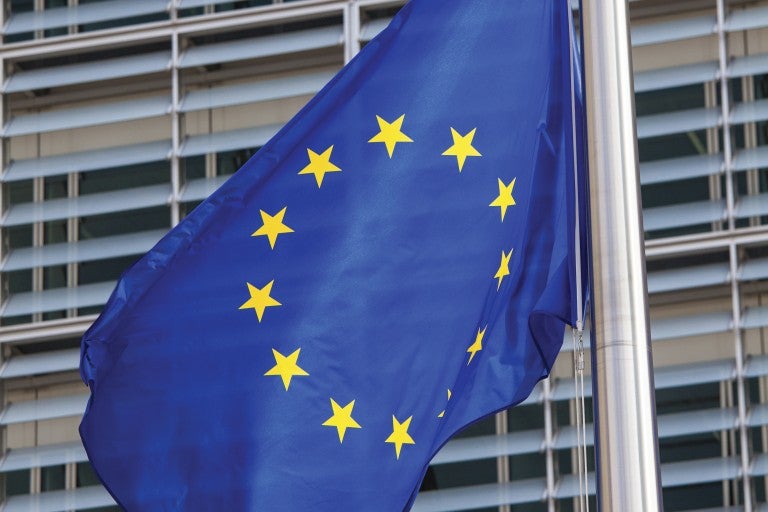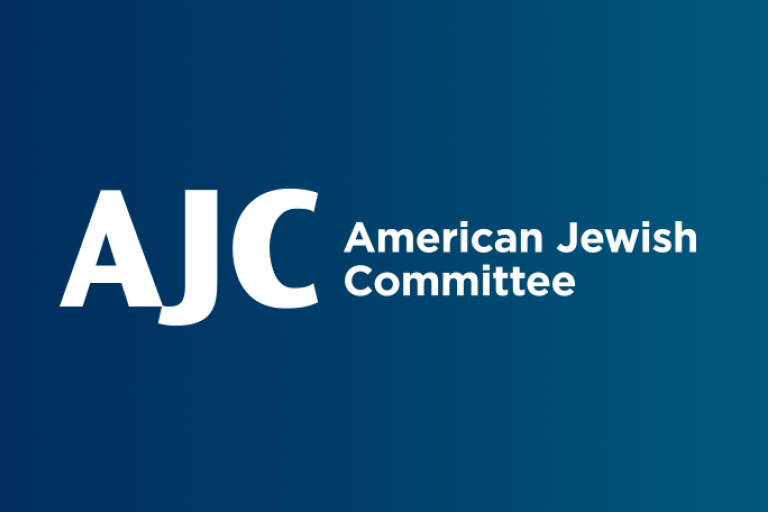October 6, 2020
For AJC CEO David Harris, assuring the safety and well-being of the Jewish people is the mission of a lifetime.
His passion to fight for world Jewry is inspired by his late parents, both Holocaust survivors. It is also motivated by a firm grasp of world history – a history that shaped and has been influenced by the organization he leads – and a commitment to never again repeat the mistakes of the past.
“The values and goals that animated AJC in its first decades are largely what continue to animate it 114 years later,” he said recently. “At the same time, we’ve learned a lot over the years about what works and what doesn’t.”
Harris, whose skilled diplomacy and vision for what the future can hold for the Jewish people are legendary, was honored on October 7 for his 30-year tenure at the helm of the premier global Jewish advocacy organization, at an event described by AJC President Harriet Schleifer as “the most successful in the 114-year history of AJC.”
Since 1990, he has expanded the organization’s reach internationally and across the U.S., building partnerships and placing outposts where the Jewish community needs AJC’s advocacy the most. But Harris has not only made the organization truly global – he has made it stronger by thinking ambitiously and empowering lay leaders to do the same.
“David really stretches me,” Schleifer said. “He’s visionary and indefatigable and always trying to get us to think out of the box. His dedication is contagious.”
At Home in the Jewish World
Harris grew up on New York’s Upper West Side never having gone to Jewish camp or Jewish day school. His family never hosted a Shabbat dinner. On the High Holy Days, he went to synagogue with his mother so she wouldn’t sit in the pews alone. But his parents and the stories they shared of struggle, survival, and resistance captivated and inspired him, as did the miraculous rebirth of the State of Israel.
At age 18, his Hungarian-born father was studying the synthesis of the hydrogen atom at the Institute of Chemistry in Vienna when the Nazis came. He escaped to France and began fighting with the French Foreign Legion in North Africa, before being imprisoned by the Vichy regime, then, after two attempts, escaping and joining OSS, the U.S. wartime espionage agency.
“I realized somewhere inside me there was a link to that identity, to that chain my family of four living generations represented and those who came before them,” Harris said. “I knew viscerally my home was in the Jewish world.”
The politics and presumptions of his generation forged his drive to protect that world. In 1971, he made his first trip to Israel. At a time when so many Americans were angry and dispirited and drifting, Harris found the opposite in Israel.
“I looked around at a country that was exciting, that was building, that had a purpose,” he said.
But he encountered animus toward Israel at university and at work. After completing his graduate studies at the London School of Economics, where some extremist voices wanted to boycott Israel, he discovered his first employer, American Field Service (AFS), excluded Israel from its youth exchange as a price to pay for the inclusion of Arab countries. When Palestinian terrorists murdered 11 Israeli athletes and coaches at the 1972 Munich Olympics, the games resumed a day later as if nothing happened. Then in 1973, while sitting in the pews with his mother on Yom Kippur, Harris learned Israel had been attacked by Syrian and Egyptian forces.
President Richard Nixon, whose reputation with his generation and American Jews was largely dismal, soon authorized an airlift operation to deliver tanks, artillery, and ammunition, helping Israel to survive.
“That’s when I learned if I really and truly care about the well-being of the state of Israel and the Jewish people, then I have to understand the need for access to whoever is in power at any given moment in Washington,” Harris said. “We don’t get to choreograph or script how things unfold. Fortunately, Richard Nixon made the right decision in that case. I have never forgotten the lessons of bipartisanship and nonpartisanship. I have tried to apply them ever since.”
AJC CEO David Harris was the first American Jewish leader to alert the world to the resurgence of antisemitism in Europe.
‘They found a nudnik’
In 1974, Harris was one of six Americans selected for a U.S.-Soviet scholar exchange. Detained and expelled three months after his arrival for meeting with persecuted Soviet Jews, he headed to Rome, one of two transit stops for Soviet Jewish refugees, and began working with them. There, Harris met his future wife, Giulietta, a Jew from Libya, whose family had been expelled under threat of death in 1967.
It was in 1978, while working in Rome and in Vienna to assist Jews fleeing the Soviet Union, that he met a charismatic AJC staff member, Ira Silverman, who later offered him a job in New York. Harris accepted.
Ahead of a meeting between President Ronald Reagan and future Soviet President Mikhail Gorbachev, Harris was asked in 1987 to organize a rally in the nation’s capital, calling for emigration rights for Soviet Jews. More than 250,000 people filled the National Mall on the eve of the summit—the largest rally ever organized in the U.S. around a Jewish issue.
Prodded by Reagan, Gorbachev paid attention. Within just a few years, more than a million Jews left the Soviet Union, mostly for Israel. It was arguably one of the most successful human rights movements of modern history.
But behind the scenes of this success, AJC was buffeted by institutional, self-inflicted challenges -- its many programs seen as too diffuse, its lay leadership and staff partnership strained, its debt becoming unmanageable.
Leaders hatched a plan to save the organization and invited Harris to paint them a picture of a transformed and revitalized agency, with a global agenda. Little did he know, it was an audition. Months later, they asked him to be the next CEO.
“They found a nudnik,” he said. “I honestly believed that I was not built for the job. It didn’t play to my strengths. My interests were diplomacy, politics, foreign policy, international relations, not management, fundraising, and financial balance sheets.”
Standing Up for Israel
Harris introduced a new level of pro-Israel advocacy to AJC’s mission shortly after he took over the agency in 1990. Support for Israel, including finding new friends for the Jewish state on every continent, became a top priority, and remains so.
Harris has seen cooperation in the Middle East region on the horizon for more than a quarter century. Senior Arab leaders have confided to him that while they might disagree with some of Israel’s policies, they still envision collaborations to address a range of regional needs, from the environment to security, from water management to trade – an alliance not unlike the European Union, including the Jewish state.
He has heard the same refrain from diplomats around the world.
“Part of our advocacy over the years was trying to encourage that compartmentalization,” Harris said. “You don’t like settlements? We get that. We’re not big on settlements, either. But that’s not the beginning or end of Israel.”
Playing to His Strengths
Harris’s strengths became AJC’s. In 1991, he led AJC to the doorstep of the United Nations General Assembly. Now dubbed the Diplomatic Marathon, Harris and other AJC leaders meet with some 70-80 heads of state and foreign ministers on the sidelines of the UN’s annual meeting, urging them to abandon the organization’s double standard toward Israel, to protect Jewish and other vulnerable communities, and to unite against common threats.
AJC’s annual meeting also went from being a dispiriting affair for about 200 people to a showcase for global leaders that attracts thousands from around the world, fittingly called the AJC Global Forum.
In 1998, Harris expanded AJC overseas, starting with a Berlin office in reunified Germany. When the Second Intifada broke out in September 2000, he was in Geneva and watched in horror as Europeans vilified Israel. Jews across Western Europe became targets of attacks from the far right, hard left, and especially Muslim extremists.
Harris arranged a private meeting with French President Jacques Chirac.
“There were antisemitic attacks nearly every day, violence nearly every day,” said Simone Rodan-Benzaquen, Director of Paris-based AJC Europe. “The response of the French president at the time was ‘I know my country and there is no problem of antisemitism here.’ David decided it was time for AJC … to remind European governments that they had a responsibility to protect Jewish communities.”
AJC soon opened offices in Paris and Brussels. To date, AJC has established offices or association agreements in nearly 50 countries, not to mention ongoing ties with dozens more, including Austria, the country that, decades earlier, had destroyed his father’s youth.
Austrian Chancellor Sebastian Kurz said conversations with Harris motivated his decision to come to the 2018 AJC Global Forum in Jerusalem and declare Israel’s security a Staatsräson (highest national interest) of modern Austria.
“I know he has been working since the 1980s, long before we met, to help Austria deal better with its Holocaust past, and this despite the very painful family history,” Kurz said. “I am honored that we have had the chance to take some important steps of that journey together.”
But the resurgence of antisemitism isn’t isolated to Europe. It has crossed the ocean, propelled by social media. AJC has expanded its domestic presence, opening offices this year in Minneapolis and Louisville. Meanwhile, its digital presence engages more than 2.5 million activists—the largest online community of any major Jewish organization. Even Harris has become a prolific Twitter personality, followed by world leaders, a range of political figures, diplomats, and media outlets.
His embrace of social media also has enabled and empowered young members of the staff to rise to the occasion and find ways to shift the conversation on yet another battleground.
His mentorship of the next generation is particularly notable, said Ellisa Sagor, his former chief of staff.
“It’s all motivated by his parents and their legacy and the world they left for him,” she said, “and [the legacy] he now wants to leave for his children and grandchildren.”
Harris credits his three children for teaching him that mentoring young leaders in this day and age is crucial for any organization or institution that focuses on the future.
“I care about AJC. I will care about AJC after I leave AJC,” he said. “The only way to reflect that caring is to make sure there are other, younger people … invested in the work. I view the Jewish journey as a relay race. I accepted the baton in 1975 and have sprinted ever since. When my last lap arrives, I want to be sure I can pass the baton on to the next runner(s).”
Meanwhile, as his legacy grows, the race continues.


